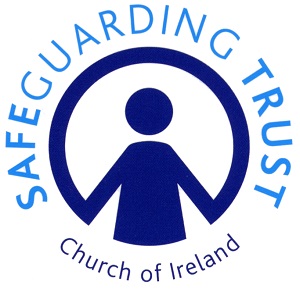This Communication Policy is for all those involved in children’s activities in Kilternan Parish
Church of Ireland. It deals with communication within the parish and with parents and children
and the wider community. To contribute to ensuring inclusivity and co-operation this policy
emphasises maintaining and improving the current channels of communication amongst those
involved in the parish and with the general public.
Good communication is essential to maintaining a positive working and learning environment.
Creating an atmosphere of mutual respect in a happy, caring and supportive environment
means that people feel included, consulted and informed. This requires that Kilternan Parish
use a variety of channels of communication so as to ensure that the relevant people receive the
necessary information.
Means of communication:
This policy encourages the use of the most effective communications mechanism depending on
context, whilst ensuring the rights of everyone involved in the communication.
Communication methods utilised;
i. Personal contact
ii. Phone calls
iii. Written communication (email, letters, notes)
iv. Text messages including What’s app
v. Social media
vi. Website
Communications procedures:
Our communication strategy is based on a module of Display, Inform, and Ask to ensure that
relevant information is available to parents/guardians, children and the wider community. We
shall use the above communication methods to ensure that this module is achieved.
We shall ensure that the following is displayed and publicly available on our website:
- General information about our (parish) activities.
- Contact details for relevant personnel.
- Child Safeguarding Statement and contact details for relevant person.
- Safeguarding Trust Policy and contact details for our Panel.
- Other supporting policies and procedures that underpin the work of the parish.
- We shall ensure that the following is displayed on our parish premises:
- Child Safeguarding Statement and contact details for the relevant person.
- Panel notice.
- Children’s information poster with photos of panel members.
- Details of children’s activities.
- Details of our parish website.
- We shall ensure that we inform parents about the following:
- Introduce the clergy, staff and volunteers that will be working with their children.
- Who their first point of contact should be within their child’s group.
- General information about the activity their child is participating in.
- Calendar of events.
- Details of activities, trips and outing.
- Code of Behaviour for their child’s group and the sanctions for breaching that Code of
Behaviour. - Reports on activities undertaken within our groups via our parish
newsletter/magazine/website/social media site or Diocesan magazine/website. - Safeguarding Trust and supporting policies through information leaflets.
- How to make a complaint.
- Any concerns clergy, staff or volunteers have about their child’s welfare and safety
provided it does not further endanger the child, clergy, staff, volunteers or panel
members. - We shall ensure that we inform children about the following:
- Upcoming activities.
- Their rights to be protected, listened to and to have their views taken into consideration.
- Safeguarding Trust through information leaflets and posters.
- The Code of Behaviour that applies to them and the sanctions for breaching that Code of
Behaviour. - We shall provide the family of all children joining one of our parish groups with information pack
which includes: - letter of welcome to parents/guardians, programme of activities;
- Safeguarding Trust parent/guardian information leaflet and Safeguarding Trust child
information leaflet (if child is over 10 years); - details regarding the meeting times and arrangements for dropping off and picking up
children; - contact details for clergy, staff or volunteers;
- membership/registration form for submitting child’s personal details/medical
information/emergency contact numbers/consent authorisation; - photographic policy/consent authorisation;
- Code of behaviour for members for your group and sanctions for breaching the Code of
Behaviour; - details of where to access of relevant policies and Child Safeguarding Statement or
copies of same. - We shall ask parents or guardians to:
- Complete a Membership Registration form for their child annually providing child’s
personal details, medical information, emergency contact number, consent authorisation. - Complete consent forms for photographs, outings etc as necessary.
- Ensure that consents are provided by those with parental/ guardian responsibility.
- Keep clergy, staff and volunteers informed about relevant information in relation to their
child and family during the year. - Confirm that the information being provided to them is being received and understood.
- Check in with clergy, staff and volunteers for feedback on how their child is doing.
- Provide feedback to clergy, staff and volunteers on what we are doing well and how we
can improve or change to benefit parents and members of our groups. - We shall ask children to:
- Ensure that the information we are providing them with is being received and understood.
- Talk to clergy, staff and volunteers about any concerns that they might have.
- Feel free to approach any clergy, staff or volunteers if they are worried about something.
- Provide feedback to clergy, staff and volunteers on what they are doing well and how they
can improve within our groups.
All information provided by parents/guardians and children as part of this Communications
Policy shall be treated with the utmost confidentiality. However, if any information pertaining to
a child’s welfare and safety comes to a clergy, staff members or volunteer’s attention through
any of these means of communication, they shall follow the relevant procedures laid out in the
Safeguarding Trust. - Adopted by the Select Vestry on 11 May 2021

